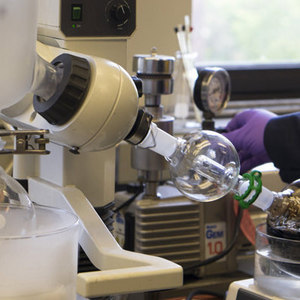Spero Energy receives NSF funding




Spero Energy Inc.
July 25, 2014
BY Purdue Research Park
A Purdue Research Park-based company whose one-step, patent-pending technology could improve the efficiency of alternative fuels and the production of fragrance products has received funding from the National Science Foundation.
Spero Energy Inc. has received a six-month SBIR Phase I grant from the NSF worth $150,000. Its technology is based on Purdue University intellectual property.
Advertisement
Advertisement
Basudeb Saha, chief technology officer, said the grant will help Spero Energy commercialize its lignin conversion technology.
"We will use the funding to develop process conditions for the lignin-derived products. The quality of these products will be tested for use in fragrances," he said. "The award also will help us evaluate the stability of our catalysts, optimize critical reaction parameters to accelerate the scaling up of the technology, and develop a commercialization plan by assisting with market research."
Saha credited the NSF and its mission to promote the progress of science.
Advertisement
Advertisement
"Besides funding basic research in all areas of fundamental science and engineering, the National Science Foundation provides R&D funds to small businesses to develop high-risk, high-potential technologies that have significant commercial and societal impact," he said. "We're humbled by the SBIR Phase I grant that we received, as it recognizes the technical and commercial merit of our work, as established through rigorous criteria and review processes from the NSF."
Related Stories
The U.S. Department of Energy Bioenergy Technologies Office (BETO) announced up to $23 million in funding to support research and development (R&D) of domestic chemicals and fuels from biomass and waste resources.
The U.S. DOE has announced its intent to issue funding to support high-impact research and development (R&D) projects in two priority areas: sustainable propane and renewable chemicals and algal system cultivation and preprocessing.
Sens. Sherrod Brown, D-Ohio, and Pete Ricketts, R-Neb., in August introduced the Renewable Chemicals Act, a bill that aims to create a tax credit to support the production of biobased chemicals.
The Chemical Catalysis for Bioenergy Consortium, a consortium of the U.S. DOE’s Bioenergy Technologies Office, has launched an effort that aims to gather community input on the development of new biomass processing facilities.
USDA on March 8 celebrated the second annual National Biobased Products Day, a celebration to raise public awareness of biobased products, their benefits and their contributions to the U.S. economy and rural communities.
Upcoming Events










